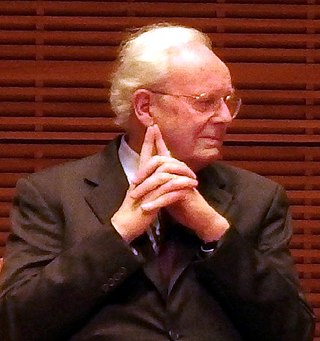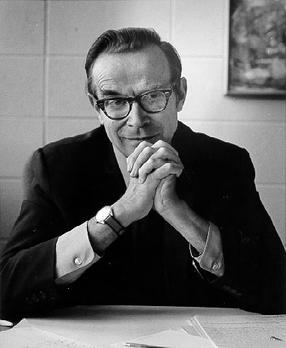Related Research Articles

The Renmin University of China is a national key public research university in Beijing, China. The university is affiliated to the Ministry of Education, and co-funded by the Ministry and the Beijing Municipal People's Government.

Nima Arkani-Hamed is an American-Canadian theoretical physicist of Iranian descent, with interests in high-energy physics, quantum field theory, string theory, cosmology and collider physics. Arkani-Hamed is a member of the permanent faculty at the Institute for Advanced Study in Princeton, New Jersey. He is also Director of the Carl P. Feinberg Cross-Disciplinary Program in Innovation at the Institute and director of The Center for Future High Energy Physics (CFHEP) in Beijing, China.

The College of Arts and Sciences is a division of Cornell University. It has been part of the university since its founding, although its name has changed over time. It grants bachelor's degrees, and masters and doctorates through affiliation with the Cornell University Graduate School. Its major academic buildings are located on the Arts Quad and include some of the university's oldest buildings. The college offers courses in many fields of study and is the largest college at Cornell by undergraduate enrollment.

Walter Fredrick LaFeber was an American academic who served as the Andrew H. and James S. Tisch Distinguished University Professor in the Department of History at Cornell University. Previous to that he served as the Marie Underhill Noll Professor of History and a Stephen H. Weiss Presidential Fellow at Cornell.
Peter Joachim Katzenstein FBA is a German-American political scientist. He is the Walter S. Carpenter, Jr. Professor of International Studies at Cornell University. Katzenstein has made influential contributions to the fields of comparative politics, international relations, and international political economy.
The Cornell University Department of History is an academic department in the College of Arts and Sciences at Cornell University that focuses on the study of history. Founded in 1868, it is one of Cornell's original departments and has been a center for the development of professional historical research institutions in the United States, including the American Historical Association and the American Historical Review. It remains a highly-ranked program in the field and its alumni and faculty have won Nobel and Pulitzer Prizes, among other distinctions. In addition, many of Cornell's presidents have served among its ranks.

The Schar School of Policy and Government, formerly known as the George Mason University School of Policy, Government, and International Affairs, is the public policy school of George Mason University headquartered in Arlington, Virginia roughly 4 miles west of Washington, D.C., with a satellite campus in suburban Fairfax County, Virginia. Established in 2000 as Northern Virginia's first public policy school, the constituent college offers undergraduate and graduate degrees in international relations, public policy, public administration, political science, international security, and urban studies along with specialized graduate certificates, master's, and doctoral programs in fields such as biodefense, international commerce, homeland security, emergency management, counterterrorism, illicit trade analysis, organization development, and knowledge management as well as executive education programs with students eventually choosing one or two degree programs to join, but having the option of taking elective courses from across several of the aforementioned sub-fields at both the undergraduate and graduate levels. While it primarily educates and conducts research in subjects related to politics, government, international affairs, and public policy/public administration-related economics, as well as study of regional issues affecting the Washington D.C. metropolitan area, the school is home to several prominent centers and institutes, including the Michael V. Hayden Center for Intelligence, Policy, and International Security, the Center for Security Policy Studies, the Terrorism, Transnational Crime and Corruption Center (TraCCC), and the Center for Energy Science and Policy; the School of Policy and Government also cooperates with the Antonin Scalia Law School’s National Security Institute in conducting research around legal issues pertaining to national security. The school is also the psephology partner of The Washington Post, collaborating on electoral polling and analysis for the paper since 2016, the two hold an A+ rating for historical accuracy and methodology in polling from FiveThirtyEight.

George McTurnan Kahin was an American historian and political scientist. He was one of the leading experts on Southeast Asia and a critic of United States involvement in the Vietnam War. After completing his dissertation, which is still considered a classic on Indonesian history, Kahin became a faculty member at Cornell University. At Cornell, he became the director of its Southeast Asia Program and founded the Cornell Modern Indonesia Project. Kahin's incomplete memoir was published posthumously in 2003.
The Southeast Asia Program (SEAP) was founded in 1950 to promote the acquisition and dissemination of knowledge about countries, cultures and languages of the region. It is an interdisciplinary program of Cornell University that focuses on the development of graduate training and research opportunities on the languages and cultures of Brunei, Burma, Cambodia, Indonesia, Laos, Malaysia, the Philippines, Singapore, Thailand, and Vietnam. Cornell is known for being the "Mecca of Southeast Asian Studies."
Douglas Warren Diamond is an American economist. He is currently the Merton H. Miller Distinguished Service Professor of Finance at the University of Chicago Booth School of Business, where he has taught since 1979. Diamond specializes in the study of financial intermediaries, financial crises, and liquidity. He is a former president of the American Finance Association (2003) and the Western Finance Association (2001-02).
Middle Eastern Americans are Americans of Middle Eastern background. According to the United States Census Bureau, the term "Middle Eastern American" applies to anyone of West Asian or North African origin. This includes people whose background is from the various Middle Eastern and West Asian ethnic groups, such as the Kurds and Assyrians, as well as immigrants from modern-day countries of the Arab world, Iran, Israel, Turkey, and sometimes Armenia.

Michael Nelson is an American political scientist, noted for his work on the Presidency and elections. He is a Fulmer Professor of Political Science at Rhodes College and a Senior Fellow at the University of Virginia’s Miller Center.
The Jeffrey Cheah Institute on Southeast Asia (JCI) is an independent Malaysian think tank established in March 2014 with a focus on key public policy concerns in Southeast Asia. It is based at Sunway University in the Malaysian state of Selangor.
David P Hajjar is an American scientist, university administrator, and professor of pathology and biochemistry at Cornell University. He is best known for his work in arterial cholesterol trafficking.

Nicolas van de Walle is an American political scientist specializing in comparative politics. He has taught at Cornell University since 2004, and is currently the Maxwell M. Upson Professor of Government. Between January 2004 and June 2008 he directed the Mario Einaudi Center for International Studies. Before coming to Cornell he taught at Michigan State University, and has worked at The World Bank and The United Nations Development Program. Since 2005, Van de Walle has served as the Associate Dean for International Studies. Van de Walle has written the "Africa" book review section for Foreign Affairs since the May/June 2004 issue.

Suzanne Mettler is an American political scientist and author, known for her research about the way Americans view and respond to the government in their lives, and helping to stimulate the study of American political development.
Andrew Mertha is an American political scientist and the Inaugural Director of the SAIS China Global Research Center at Paul H. Nitze School of Advanced International Studies (SAIS) of Johns Hopkins University. He is a scholar of Chinese and Cambodian politics with a particular emphasis on bureaucracy, institutions, Leninist Party Systems, policymaking and implementation, and China–United States relations. Mertha speaks Khmer, Mandarin, French, and Hungarian. He is one of few American scholars on China-Cambodia relations due to his proficiency in Khmer.
References
- ↑ "Thomas Pepinsky | Lowy Institute". www.lowyinstitute.org. Retrieved 2022-10-07.
- ↑ "Thomas Pepinsky | Department of Government". government.cornell.edu. Retrieved 2022-10-07.
- 1 2 3 "Thomas Pepinsky". Brookings. 2018-10-31. Retrieved 2022-10-07.
- 1 2 3 Pepinsky, Thomas (April 11, 2022). "CV of Thomas B. Pepinsky".
- ↑ "Department of Music". music.cornell.edu. Retrieved 2022-12-07.
- ↑ "30 Arts & Sciences faculty honored with endowed professorships | Department of Government". government.cornell.edu. Retrieved 2022-10-07.